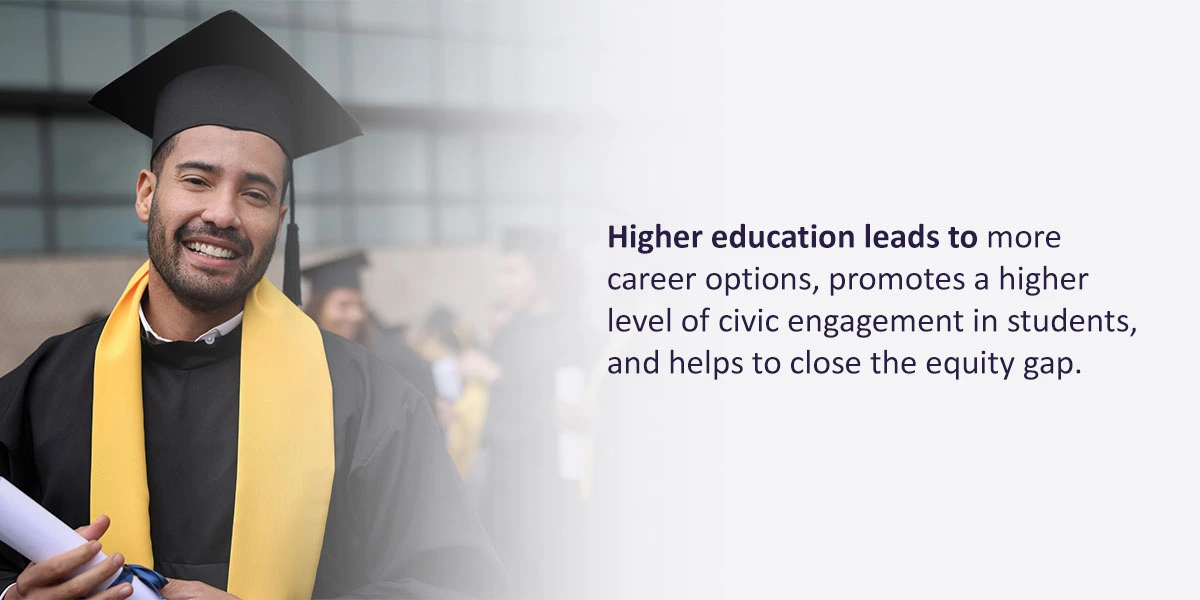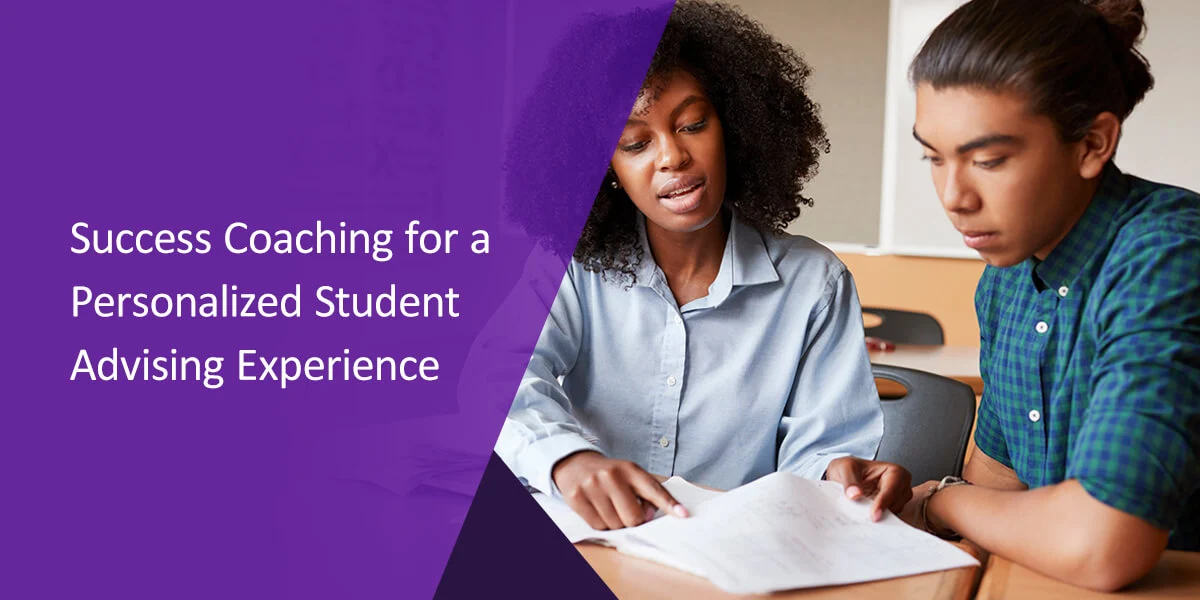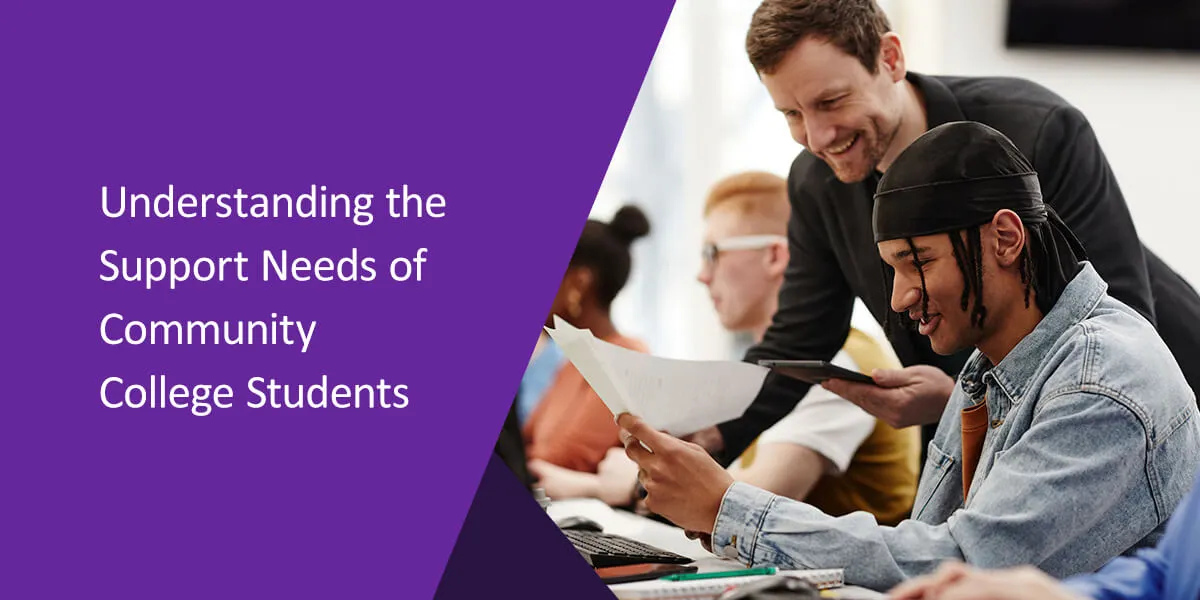



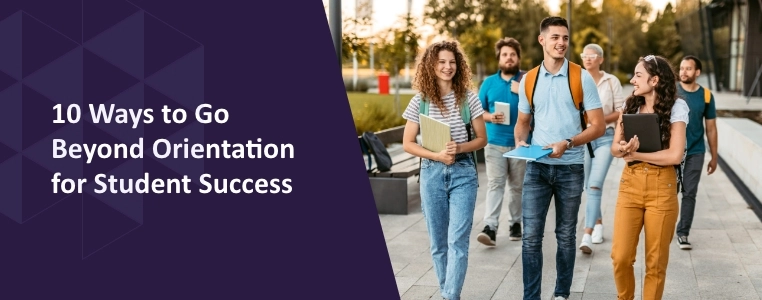
When students first attend college, they might be excited about their potential career opportunities, future extracurricular involvement, or academic exploration. For first-year or returning students, reaching out to them during orientation can significantly improve their overall success and happiness. Whether you plan to connect them with advisors and faculty or reach out to students through peer mentors and student clubs, bonding with students from orientation and beyond can improve their experience and build positive relationships.
Providing a comprehensive student orientation program in college can benefit first-year and returning students immensely. By helping them learn about academic expectations and life on campus, you can prepare them for their stay and build self-confidence.
When students attend college for the first time, they may find making friends and building relationships challenging. By connecting students with their peers during orientation, your organization can ensure new students are able to meet different people and make acquaintances. Perhaps you can encourage icebreakers, group meetups, and community bonding through peer meetings and mentorship programs. When students learn about the campus together, they bond through new experiences. Students will recognize faces and feel they belong even if they don’t become best friends.
Orientation is the best time to teach new students about iconic campus landmarks or give them a map of essential spaces, like their residence hall, academic buildings, and dining halls. Your institution can provide thorough tours hosted by student guides. You can help students build self-confidence and improve campus navigation by showing them where to go for different needs.
During orientation, help students explore college resources, such as the health services on campus, tutoring center, or fitness center. Give out details you think would be relevant to new students. Whether they are athletes, theater enthusiasts, or musicians, all types of students will want to know about essential resources when living on their own.
Many colleges help students register for classes in the first semester of their first year. Provide a group meeting where students with the same degrees can meet with their advisors and review courses and classes. You can check what prerequisites, internships, or general education classes are required to graduate and inform students about their path to graduation. Because new students may not understand how to register or select courses, an academic advisor can take the guesswork away and ensure they complete registration correctly.
Help your new students learn about fun, exciting on-campus activities during orientation. For example, if you know that students with certain degrees might have specific interests, try connecting them with on-campus groups and clubs. You can also help students explore new opportunities and activities they may not have considered before. Campus groups are a great way to make friends and socialize. Whether through student government, a theater club, voice lessons, or Greek life, students feel more connected to campus when they feel included and involved.
For first-year students, living independently for the first time can be intimidating. The more your institution prepares students to live by themselves, the more likely they will succeed. Have guides show students around their dorms if they’re living on campus, and be sure to provide directions to dining halls, laundry rooms, and other relevant areas they’ll need while living on campus.
During orientation, help students finish required tasks and hand in paperwork. Remind students to complete registration with their advisor, and pick up essential materials like their student ID, parking pass, class materials, books, and school swag.
Orientation is also a great time to communicate with parents and prepare them for the transition. Your institutions can hold sessions where parents meet without students. Teach them about college programs, policies, and expectations. You can also inform them about billing, information access, student portals, and faculty contact information. Many parents will also benefit from advice about staying involved and supporting their students through the transition.
By implementing student retention initiatives, your institution can retain students and help guide them toward success. Here are 10 ways to go beyond orientation for student success.
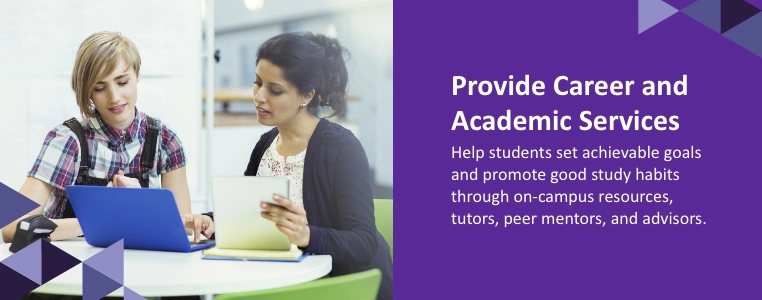
Colleges can provide career advice and academic services for those who need guidance and mentorship. Because the point of your organization is to provide students with degrees, helping them develop their career goals and improving their academic practices can positively impact their life. Help them set achievable goals and promote good study habits through on-campus resources, tutors, peer mentors, and advisors.
Help students build lasting relationships with staff, faculty, and advisors. When students know who to contact when struggling, their experiences can improve, and they are less likely to drop out. A trusted professor can help guide students through obstacles or connect them with a student success mentor who can teach them good academic and life skills.
Many colleges will benefit from using reliable data systems to track at-risk students. By understanding what social, emotional, physical, or academic issues might cause a student to struggle, your organization can practice early intervention strategies and reduce the chance of dropouts. You can also use technology to implement intervention strategies, such as email marketing, automated alerts, or assigning tag types.
Help students build a sense of belonging and foster strong relationships. Show them what clubs or groups they can get involved in and continue to update students on new student opportunities, events, and activities. Consider connecting students to resident life, clubs, Greek life, or volunteer programs.
Parents can be integral to a student’s success at college. Ensure you contact parents through emails and virtual sessions to inform them of their child’s progress. By engaging the parents, you can help them better support their students at every step of the educational process.
Gathering feedback can help you measure how happy or satisfied students are with their program, academics, and activities. Send out polls and surveys regularly and address issues quickly as they come up.
When students live independently for the first time, it is essential to encourage autonomy. Your institution can help students develop independent decision-making through life-skills training, like smart goal-setting and career readiness.
Colleges that promote extracurricular activities can improve student retention and increase student happiness. Help connect them with student clubs or campus departments. For example, your English department might have a space for English majors to meet up, or perhaps the science building has a space for chemistry students.
Some students have work or family responsibilities. For those who care for children or family members, flexible night or weekend classes can help them work around their schedule. Consider commuting students as well. Connect them with on-campus opportunities and groups to help them feel involved.
Because finances can be a major concern for students, inform them of financial resources. Provide them access to financial aid and tell them about grants, scholarships, or job opportunities.
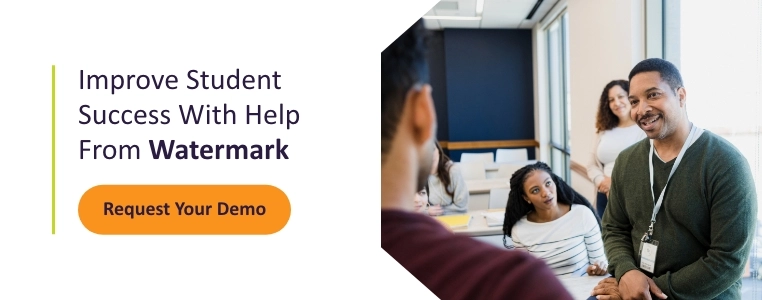
Watermark can assist higher education institutions with data collection, research, planning, and measurement services. If you want to improve student success at your institution, consider partnering with us. Contact us today to speak to a representative or request a demonstration online.




































































